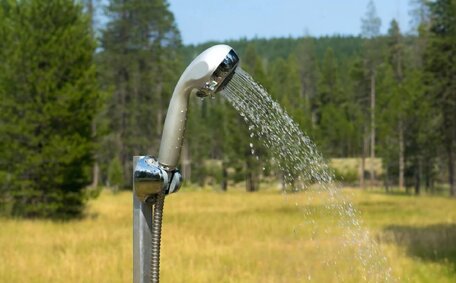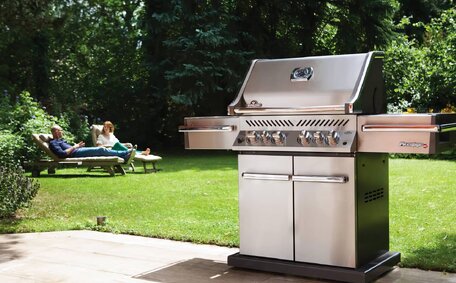Defining a Plumbing Emergency
A plumbing emergency is a situation where a rental property’s gas or water systems present urgent risks of significant damage or danger that require immediate attention. Common examples include:
- Burst water pipes flooding the property
- Backed up sewer lines causing sewage to back up into the property
- Gas leaks that can lead to explosion or poisoning
- Complete loss of hot water system functionality during winter
- Major blockages like a blocked toilet or backups that leave toilets or sinks completely unusable
Unresolved emergencies may involve structural damage due to flooding, health hazards from sewage or gas leaks, and a complete loss of vital services such as heating or sanitation facilities.
In contrast to issues like leaking taps or minor clogs that might not pose immediate threats, plumbing emergencies demand an urgent response, typically within 24 hours, to prevent property damage or personal injury.
Immediate reporting of suspected plumbing emergencies to the landlord or property manager is crucial in a landlord-tenant partnership to ensure timely repairs. Landlords and property owners must ensure prompt repairs by a professional plumber in these high-risk situations, avoiding circumstances like a rent increase due to deferred maintenance. Delays could be detrimental, so swift action is crucial in situations like burst pipes, gas issues, sewer backups, or loss of critical plumbing functions.
Landlord vs. Tenant Responsibilities
When it comes to emergency plumbing repairs in a rental property, there are distinct responsibilities for both tenant landlord relations as outlined in the Residential Tenancy Agreement.
Landlords are generally responsible for maintaining the property’s structural integrity and safety. This includes ensuring that essential water service like the water system, water heaters, drainage, and sewer systems are in working order and arranging professional repairs in the event of bursts, leaks or blocked drains that would render those systems inoperable.
Tenants, on the other hand, have a duty to properly use and minimise wear and tear for the rental property and must notify landlord of any issues within 14 days. Although damage can occur accidentally, tenants are liable for repairs resulting from their negligence or misuse, such as causing drain blockages by flushing inappropriate items.
For true plumbing emergencies that tenants and landlords must address like gas leaks or sewage backups that pose an urgent health or safety risk, the property owner is usually responsible for repair actions taken promptly and professionally. However, if tenant negligence is the cause, the landlord cannot eschew the costs incurred.
To avoid confusion, landlords and tenants should clearly communicate about any repair urgent plumbing issues and determine causation if faults arise. Getting a professional assessment carried out can also clarify who is responsible within a reasonable time, the landlord or tenant, for the damages, though costs and responsibilities for routine versus nonurgent repairs differ,, the Residential Tenities Act ultimately aims to ensure the property stays safe, sanitary, and functional for tenants.
Maintenance Duties in Rental Agreements
Rental agreements typically feature clauses detailing plumbing maintenance and repair duties to provide clarity for tenants and landlords.
Rental agreements must include emergency contacts and procedures to ensure urgent plumbing issues are reported and resolved promptly. Emergency call-out numbers should be listed in all tenancy documents to prevent confusion about response times. Clear instructions for communicating concerns via phone outside standard hours can help prevent serious issues from going unnoticed.
Clauses in the lease agreement should also clarify, before moving forward, if the tenant can arrange the necessary repairs and maintenance checks on plumbing systems, mitigating rent increases due to deferred maintenance. A tenant can prefer handling minor servicing on their own to retain control over contractors and costs. Landlords alternatively may seek more than just certified technicians inspecting on a regular basis throughout the tenancy.
Outlining maintenance responsibilities in the rental agreement avoids confusion and ensures that necessary plumbing repairs are conducted efficiently. It also ensures accessible emergency processes are in place enabling prompt resolutions, avoiding disputes over financial liability.
With clear terms on everyday plumbing needs, emergency repairs and transparent procedures for addressing issues, a landlord can provide assurance that tenants’ essential services will be reliably maintained. This clarity allows tenants to fully understand their rights and responsibilities when dealing with plumbing issues.
Processes for Urgent Repairs and Reimbursements
If a tenant encounters an urgent plumbing issue such as a burst pipe or a blocked drain, the property must see immediate action taken by:
- Stopping any hazard to gas, electricity, and water if possible, such as turning off the mains if a pipe has burst or a water leak is threatening electrical safety
- Securing the area, such as placing buckets to catch water or cordoning off rooms with water-related electrical hazards, and contacting your landlord to ensure notification of the issue
- Contacting your landlord or landlord agent and the emergency contact numbers listed for repairs in your tenancy agreement
- Describing the issue in detail and emphasising the urgent risks involved
- Arranging a priority inspection and, if necessary, repair work by a recommended licensed plumber
Tenants might pay upfront after a plumbing contractor fixes the issue, but they can negotiate rent adjustments with the landlord or agent if repairs are required due to damage. Alternatively, legal advice can be sought and applications to the tribunal made through the Office of Fair Trading, providing documented expenses to the landlord or agent, along with copies of invoices and receipts, for reimbursement in accordance with tenancy laws.
The Residential Tenancies Act requires landlords to ensure all essential services on a rental property are maintained and in proper working order. As such, landlords are generally responsible for covering the costs incurred in ensuring all essential services are working properly and in rectifying plumbing emergencies when contacted promptly, unless due to tenant negligence.
Urgent repairs, such as burst pipes that threaten property safety or cause damage, must be resolved quickly.
Keeping accurate records and following the agreed processes, tenants can facilitate speedy repairs and secure full reimbursement for expenses in plumbing emergencies.
Recommendations to Avoid Disputes
To prevent disputes regarding financial liability for emergency plumbing repairs, both landlords and tenants can take proactive measures including:
- Establishing clear and open communication channels to discuss any arising issues promptly
- Tenants should issue written notices for visible plumbing issues as early notification
- Landlords responding promptly, ideally by the following day, to urgent repair requests or notifications of failures from tenants
- Following protocol for repairs outlined in the tenancy agreement
- Tenant should keep detailed records of communications, contractor quotes, invoices and receipts
- High-quality drain cleaning and assessments of plumbing faults by a recommended licensed plumber can determine the cause
- Addressing maintenance issues early before they escalate into emergencies
Landlords should ensure emergency contact details and expected response times are up-to-date in tenancy agreements, providing efficient resolution to tenants’ inquiries. Clear instructions for contacting these numbers after-hours or during business days offer tenants reassurance and clear guidance.
Likewise, tenant needs extend to using plumbing fixtures appropriately, avoiding negligent actions like flushing banned items to prevent blocked toilets leading to floods or sewage backups.
Landlords must swiftly hire qualified contractors and bear the costs for emergencies not caused by tenants, except in cases of proven negligence. Keeping detailed documentation ensures landlords can determine liability if disputes emerge.
Open communication, timely maintenance, and meticulous record-keeping enable landlords and tenants to manage emergency plumbing repairs and cost responsibilities effectively, preventing disputes.
Advice for Best Practices
Maintaining a properly functioning plumbing system in a state property is a joint responsibility for landlords and tenants. Some best practises include:
For Landlords
- Conduct regular maintenance checks and any necessary plumbing repair on all plumbing fixtures and drain lines
- Landlords should ensure annual inspections of the water heater, pipes, and sewer lines by a licensed professional.
- Perform prompt repair or replacement of aging or damaged equipment, such as water systems, to prevent issues from worsening
- Always employ licensed plumbers for all plumbing work to guarantee the quality of workmanship.
- Ensure emergency contact details are provided to tenants to report urgent issues
- Respond to tenant repair requests within two business days to prevent minor issues from escalating into emergencies.
For Tenants
- Familiarise yourself with the location of water shutoff valves in case of leaks
- Promptly report any leaks, clogs, plumbing malfunctions, or smoke alarm issues to landlords.
- Refrain from pouring fats or harsh chemicals down drains to avoid blockages
- Take short showers and ensure there are no dripping taps to conserve water
- Avoid planting trees/shrubs near exterior water and sewer pipes
- Tenants should not be expected to undertake major DIY repairs on plumbing systems responsibly
When all parties commit to proactive maintenance, timely fault reporting, and proper use of plumbing systems, expensive emergencies can be reduced, ensuring essential services remain operational.





